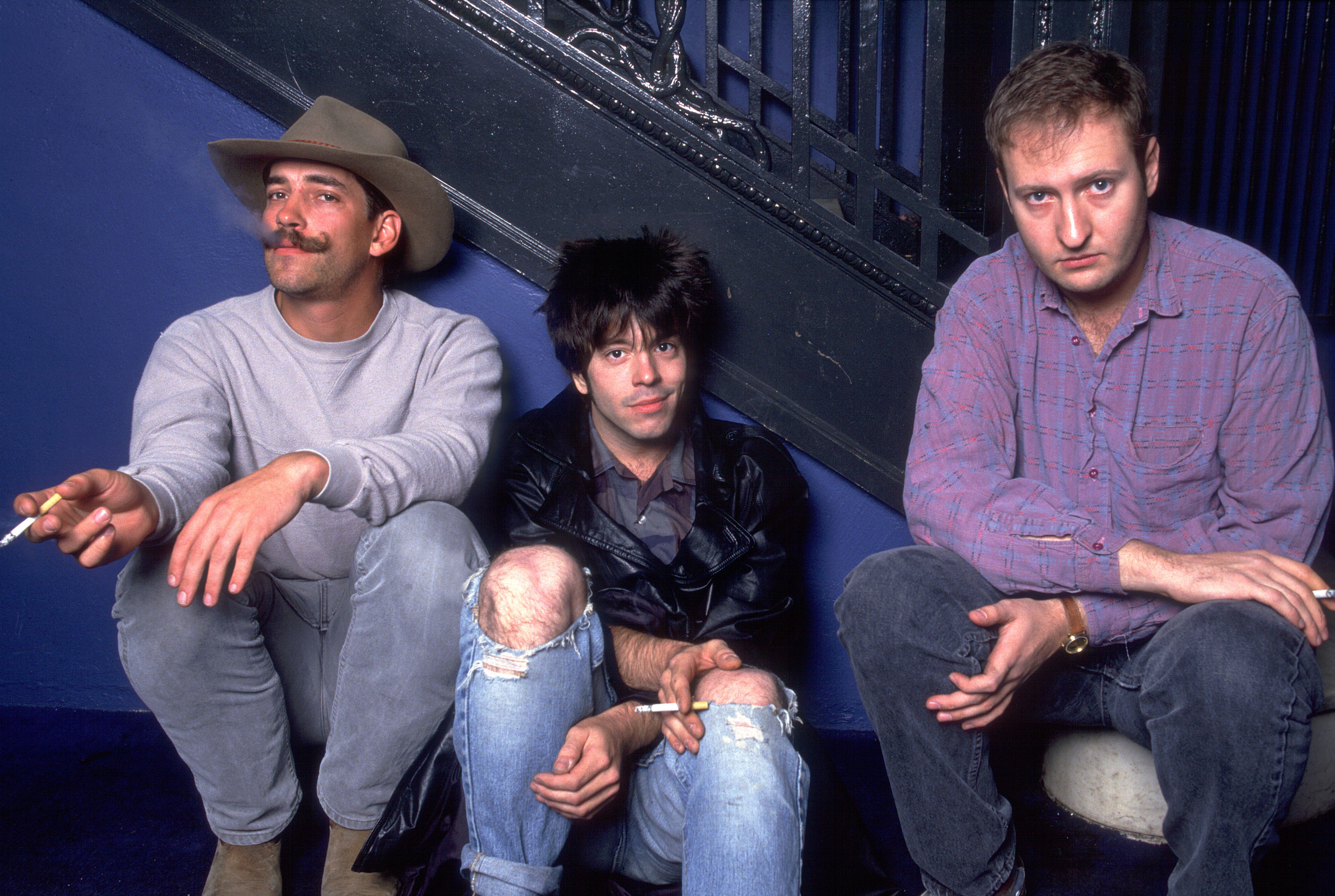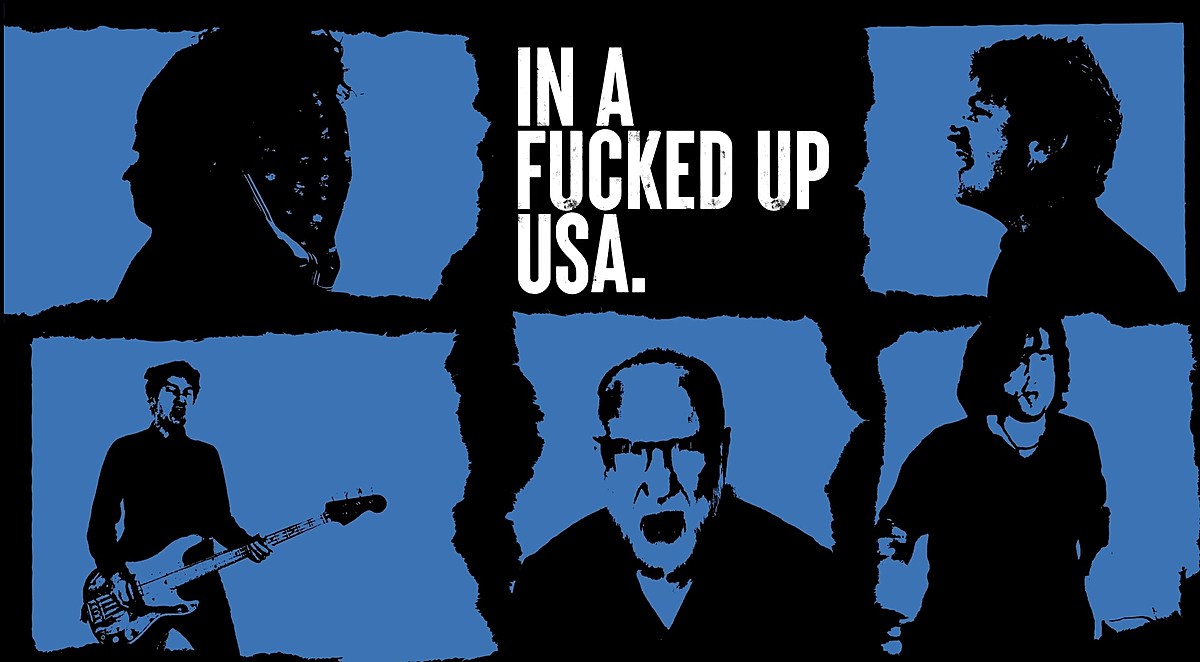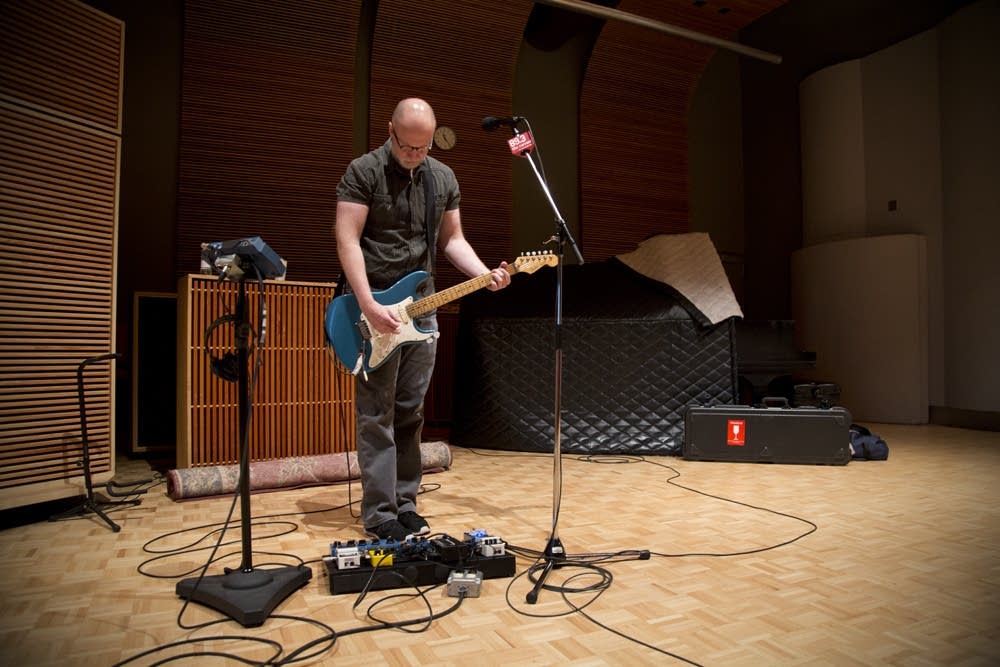All images courtesy of Getty Images

By Andrew Daly
[email protected]
/imageserve/1133345417/0x0.jpg)
In keeping with my recent theme of writing about legendary solo artists who unabashedly do what they do, I thought the next logical progression, for me at least, was Bob Mould. I first became aware of Bob Mould in the same manner that I assume many of you have, through his seminal 1980s Punk/Alternative band, Hüsker Dü. If you’re into Indie, Punk, and Alternative then you know that Hüsker Dü is simply put – amazing. They are a truly singular band, with Bob Mould’s baritone vocals front and center. I remember being around 20 years old, and picking up a copy of the band’s 1986 album Candy Apple Grey, and hearing the lo-fi opening chords of “Don’t Want to Know If You Are Lonely.” The song is loaded with the combination of youthful energy, and sardonic lethargy that only a Bob Mould-led band could pull off. At that point, you could say that band had my attention. However, it wasn’t until I heard “No Promise Have I Made” from the same album, that I truly became hooked. The raw emotion, intermingling with delicate punk rock piano, accented by a wash of near-silent percussion, exploding into a crescendo of symbols was truly something new and exciting to me. Now I not only loved the band, but I wanted to dig deeper. I wanted to know who wrote these songs.
Bob Mould was born in Malone, New York in 1960, but his family moved around to several places, finally settling in St. Paul, Minnesota. It was there that Mould attended Macalaster College, where he would meet drummer Grant Hart and bassist Greg Norton, a trio who would go on to become Hüsker Dü. Mould and Hüsker Dü first gained small notoriety as a Hardcore Punk group with a series of recordings issued via the local independent label SST Records. As the 1980s progressed the band gained enough traction to garner major label attention, and eventually released some of their most melodic music through Warner Brothers Records. Through this time the band only garnered modest commercial success, and they eventually broke up acrimoniously due to member drug abuse, personal problems, massive disputes over songwriting credits, as well as the general direction of the band. The three members of the group would never reconcile and sadly took jabs at one another through the media right up until Grant Hart’s death in 2017.
As seminal and influential a band as Hüsker Dü were, it is my humble opinion that Bob Mould didn’t need them, and arguably ended up better off without them. After the disillusion of Hüsker Dü, Bob Mould decided to center himself. In 1988, Mould secluded himself in a remote farmhouse in Pine City, Minnesota, and quit both drugs and alcohol cold turkey. It was around this time that he also truly began to question his sexuality, a rumination that would come to roost soon enough as well. Regardless of the chaos and noise in his life, Bob Mould has always had a supreme talent for writing poignant, catchy rock music, littered with distortion and noise. It’s music that is like no other, and truly his own, and so in 1989 he signed with the newly formed Virgin Records, and released his first solo album, Workbook, and followed that up with Black Sheets of Rain. These two albums demonstrate Bob Mould’s trademark dynamic of interchanging lighter-toned Pop, with wall of sound guitar noise, which is buttoned up with emotive, self-deprecating lyrics. On that note, anyone wondering where the likes of The Pixies, Nirvana, and Foo Fighters get their sonic influence from, can look directly at Bob Mould.
In 1992, Bob Mould decided to take a break from his solo career, and founded the band Sugar, with drummer Malcolm Travis, and bassist David Barbe. There are some who feel that Mould’s work with Sugar is the finest he ever laid to tape, and to be honest – they’re probably right. 1992’s Copper Blue is an unmitigated masterpiece from start to finish. For what it’s worth, it was NME’s 1992 Album of the Year, and to date is his most successful commercial album, selling just around 300,000 copies, which if you’re keeping score isn’t even enough to garner “Gold” status from the RIAA. It goes to show that while critical praise is nice, it’s really not worth the paper it’s printed on. Bob Mould has been making albums worth their proverbial weight in gold, and yet he can’t actually attain “Gold” status. Always remember to think for yourselves, Bob Mould would want it that way. On the subject of planting one’s flag, and thinking for yourself, the next chapter of Bob Mould’s journey would go on to become perhaps his most reflective and important yet.

After the disillusion of Sugar, Bob Mould set forth once again on his journey as a solo artist. During the late 1990s, Bob Mould had finally come out as gay and had fully embraced his identity while living in New York City. During this period, he took a break from music, and became involved with his other great passion, professional wrestling, and even took a job with the WCW as a scriptwriter in 1999. Alas, Bob Mould was too creative to be held down by the constraints of scripted wrestling, and he returned to music in short order. However, the liner notes of his 2002 album Modulate thank some of the wrestlers he associated with, most notably Kevin Nash and Kevin Sullivan, both of whom are very outspoken about supporting gay wrestlers in and out of the business.
Bob Mould, in my estimation, has a tremendous and in-depth discography that has been sadly ignored by the mainstream media, and as a result, not enough people are familiar with his music outside of Hüsker Dü. When perusing through his catalog, and endeavoring to consume his music, I feel it’s easy to become confused and overwhelmed. From a young age, Bob Mould was a confused, if not angry man, and that bled into his music. His songs are writhe with conflict, and agony, all the while laced with noisy, jangly Pop hooks. To know and understand his music, you need to know and understand the man. Bob Mould once said, “I’ve always been a write-what-you-know kind of guy.” It’s ironic that such an angular, and laconic man can have such a simple methodology.
Often times we hear these stories of lifelong rockers, who as they get on in years begin to sort of calm down. Life catches up with them. The persistence of time grinds them down, and all that is left is simple, mellow sweetness. Bob Mould’s thirteenth solo album, Sunshine Rock just might have had you thinking that he had in fact calmed down. With songs like “Sunshine Rock”, “Sunny Love Song” and “Camp Sunshine,” it really did seem that Bob Mould had found his inner peace. Perhaps it’s true that he did find inner peace and personal happiness, but Bob Mould never has been fully mellow, or entirely sweet, and just as is the case with Bob Dylan, and Neil Young, Bob Mould’s songwriting truly takes center stage in times of strife and turmoil.
In June of 2020, Bob Mould released the lead single “American Crisis,” which will be an important piece of his upcoming album of angry, raging protest songs called Blue Hearts. The track begins with a full-on scream, and it’s relatable. For months we have been trapped in our houses, watching from behind the fogged glass of our windows while the world burns around us. I personally have at times felt the pressure of a tyrannical thumb pressing down onto me. I suspect it’s a feeling that many of us here in America have begun to feel more and more with each passing minute, hour, day, and month. At 60 years of age, Bob Mould has been watching and listening, and he’s done with all of that now. He has something to say – “I never thought I’d see this bullshit again.” The lyrics compare the current political and social environments to that of the 1980s, a time when Mould was at his angriest with Hüsker Dü. It’s funny how things come full circle for Bob Mould. Maybe he is surprised, but no one that follows him should be.
The album is a downright stark about-face from Sunshine Rock, with Mould going on to say that Blue Hearts is, “The catchiest batch of protest songs I’ve ever written in one sitting.” With lyrics like, “Welcome back to American crisis. No telling what the price is,” the album is as aggressive as it is cutting. Mould further commented on the album, “American Crisis is a tale of two times: Past Time and Present Time. The parallels between 1984 and 2020 are a bit scary for me: telegenic, charismatic leaders, praised and propped up by extreme Evangelicals, either ignoring an epidemic (HIV/AIDS) or being outright deceitful about a pandemic (COVID-19).” With tracks like “Heart on My Sleeve”, “Fireball”, and “Forcast of Rain,” one can truly see where Mould is coming from. Simply put, he’s pulling no punches and he is sick of this shit. I think we all can relate.

Bob Mould’s fourteenth studio effort, Blue Hearts drops in September, and I strongly advise you to listen to it. Use the time in between now and then to immerse yourself in his music. Bob Mould is not only one of the true Indie Rock heroes of the last quarter-century, but he is also a songwriter, and more importantly, a wonderful human who has something to say. Something truly worth listening to. Bob Mould is a man with a perspective that stretches far beyond the horizon. A songwriter with a deft ability to dig deep into his own soul, scoop little portions of his own heart out, gift them to you, and happily allow you to make them your own. With this new album, Bob Mould is in top form. It’s angry. It’s loud. It’s aggressive. It’s “Fuck you.” Most importantly, it’s a statement that truly matters.
So, why am I writing about Bob Mould? Why did I write about Bob Dylan and Neil Young? Why did I choose to write about these three men in succession? Yes, it’s true that each of them has new, and expectedly fantastic music out for 2020, but for me, there is more to it than that. These days people are quick to anoint the next “genius.” They hear an album or two and say, “Yes! They’ve done it. We’ve got an album of a generation here folks.” Well, frankly – that’s bullshit. It simply doesn’t work that way. Like anything else, prestige and honor are earned, and I am not talking about critical acclaim. Bob Dyan. Neil Young. Bob Mould. These are men that have withstood the test of time, and created seminal art over decades. Art which has touched the hearts and minds of countless people. Endless queues of truly “genius” and “generational” songs, the likes of which will never be duplicated, and couldn’t be even if anyone tried.
In 2020 we need heroes. Real heroes. We need artists with loud voices, and thick callused skin, who are not afraid to spit in the face of the oppressors, and tyrants who aim to drag us all down and divide us. Artists like Bob Dylan, Neil Young, and Bob Mould have the wherewithal and the ability to raise us up. Love them or hate them, they’ve been here before. They are part of the glue that will hold us together. Don’t take that for granted. In 2020 and beyond we need a light. We need hope. We need to not only call out but forever mark the villains of the world with indelible ink, stained with lyrics of protest and hope. So, before you are so quick to name the latest flavor of the month’s bombastic pop song as “genius,” before you anoint the next forgettable top-40 banger a “generational album,” remember that the old guard still has something to say and that the kids still have a lot to learn, and even more to earn.

– Andrew Daly (@vwmusicrocks) is the Editor-in-Chief for www.vwmusicrocks.com and may be reached at [email protected]
